CA4SH and partners highlight the role of healthy soil at the Second United Nations Food Systems Summit Stocktake
July 27-29, 2025 - The Second United Nations Food Systems Summit Stocktake (UNFSS+4) took place from 27 to 29 July, 2025, in Addis Ababa, Ethiopia, co-hosted by Ethiopia and Italy. Taking place four years after the 2021 UN Food Systems Summit (UNFSS), UNFSS+4 provided a platform for reflecting on progress, strengthening collaboration, and unlocking finance and investments to accelerate food systems transformation.
The Coalition of Action 4 Soil Health (CA4SH), launched at the 2021 UNFSS, co-hosted two thematic side events, co-organized a joint session with fellow UNFSS Coalitions of Action, and showcased its work through an exhibition a booth in the exhibition area, amplifying the role of healthy soil in delivering on food, nutrition, climate, nature, and land goals.
Read below for a summary of our engagement and key takeaways from the Summit.
Grounding Food Systems Transformation in Soil Health: Evidence and Cross-Sectoral Action
This side event, co-hosted by the National Planning Authority of Uganda, Coalition of Action 4 Soil Health (CA4SH), CIFOR-ICRAF, EIT Food, International Union for Conservation of Nature (IUCN), Swedish International Agriculture Network Initiative (SIANI), Vi Agroforestry, Alliance Bioversity-CIAT, Young Professionals for Agricultural Development (YPARD), Conscious Planet-Save Soil, World Business Council for Sustainable Development (WBCSD), Food and Agriculture Organization of the United Nations (FAO), explored four key pillars essential to improving soil health globally: evidence-informed action, inclusive investment pathways, policy coherence, cross-sectoral partnerships.
Dr. Ivan Lule (NPA) opened the session by providing inspiring remarks highlighting how Uganda is prioritizing soil health in several national policies including a renewed investment in updating their soil maps. He said he was inspired to see so many participants here recognizing the important role of healthy soil for food and nutrition security.
Glindys Virginia Luciano (EIT Food) opened the session saying that we all need to care about soil. That soil health as a key enabler for sustainable, equitable, and resilient food systems, highlighting policy coherence and capacity building as foundational for long-term transformation.
Emeline Fellus (WBCSD) stated that “soil is central to the food system transformation pathway. In order to attract investment we need the right data for the private sector, and this data needs to be simple and clear.”
Tadeo Ajuna (YPARD) highlighted that it is not just important to engage and include youth, but that we need youth-led solutions to scale healthy soil solutions and showcased how YPARD Uganda is doing just that. He asked the participants and the government representatives to include youth at the table, even when developing policies.
Leigh Winowiecki (CIFOR-ICRAF & CA4SH) provided a scene setting presentation reminding participants of the definition of healthy soil and why it needs our recognition and protection.
The session closed with inspiring words for panelists including key messages around the need for consistent monitoring frameworks, funding, youth-led engagement, and closing remarks from Pernilla Ivarsson (National Convenor, Deputy Permanent Representative to FAO, Sweden) saying that “knowledge alone is not enough, We need long-term systemic collaboration and young people must be part of the solution”.
From Riyadh to Mongolia: Bridging Action for Agroecology and Soil Health to Transform Food Systems
This side event, co-hosted by Ministry of Food, Agriculture, and Light Industry of Mongolia, Mongolia UNCCD Presidency, CA4SH, CIFOR-ICRAF, WWF International, Agroecology Coalition, UNCCD Youth Caucus, United Nations Major Group for Children and Youth (UN MGCY), World Business Council for Sustainable Development (WBCSD), and Ambition Loop, explored how agroecology and soil health can serve as transformative levers to deliver more inclusive, resilient, and sustainable food systems. Framed around the Riyadh Action Agenda (RAA)—launched at UNCCD COP16—and looking ahead to COP17 in Mongolia, the session showcased how these approaches can bridge implementation across national food systems pathways and the Rio Conventions on land, climate, and biodiversity.
Speakers emphasized the need for urgent, coordinated action. “Business as usual is not an option”, said Leigh Winowiecki (CIFOR-ICRAF and CA4SH). “Increased multi-stakeholder action to support implementation, monitoring, policy coherence, and financing of soil health and agroecological approaches are needed.” These themes resonated throughout the discussion, as participants reflected on progress, challenges, and opportunities across diverse contexts—from policy to practice.
Agroecology and soil health were underscored as central to food security and nutrition, ecosystem restoration, climate resilience, and equitable livelihoods—advancing multiple Sustainable Development Goals (SDGs). “Soil health is central to the regenerative landscapes agenda. It is an asset and it is under threat”, said Emeline Fellus (WBCSD). “One of the key principles of agroecology is soil health” added Oliver Oliveros (Agroecology Coalition), reinforcing its foundational role in food systems transformation.
Hanieh Monghani (UN Permanent Forum on Indigenous Issues) highlighted the knowledge and leadership of Indigenous Peoples, noting that “Indigenous peoples read soil like a book.”
Nicolás Domke Venegas (SENA Group and Chilean Youth Biodiversity Network) further highlighted the critical role of youth in driving change across sectors: “Youth action on policy, Youth action in research. Youth action in the private sector.”
Aligning with the four RAA action areas—people, finance, innovation, and implementation—the session brought together farmers, governments, youth, scientists, Indigenous Peoples, and civil society to co-develop actionable priorities for scaling agroecology and soil health within national food systems pathways, investment frameworks, and accountability mechanisms.
Gonzalo Muñoz Abogabir (Ambition Loop) described the RAA as a “whole-of-society approach, recognizing the capacity of non-state actors and governments to contribute to food system transformations. There is urgency to restore 1.5 billion hectares of land.” He invited participants to contribute to the COP30 UNFCCC and UNCCD COP17 action agendas.
Key outcomes included a shared call for stronger policy coherence, inclusive governance, and increased recognition of agroecology and soil health as essential to food systems transformation. These insights will feed into an upcoming policy brief to infirm preparations for COP17. The session also reaffirmed the importance of creating an enabling environment to scale community-driven, locally grounded solutions—led by those most connected to the land.
UNFSS Coalitions of Action
On 27 July (Action Day), representatives from Coalitions of Action (CoA) convened for a hybrid dialogue aimed at strengthening our collective contributions to food systems transformation. This session, co-organized by CoA focal points and supported by the UNFSS Coordination Hub (the Hub), was informed by a series of online preparatory workshops designed to foster peer learning and exchange, surface opportunities for joint action, and shape intended outcomes toward the Summit and beyond.
Rooted in co-creation, the dialogue underscored the Coalition’s role as force multipliers, bringing together diverse food systems actors, bridging thematic and national priorities, and translating global ambition into local action. While diverse in focus, the Coalitions are united in their commitment to systemic change, collaboration, and impact at scale.
Discussions centered around three mutually reinforcing priorities: demonstrating the added value of Coalitions, identifying the enabling conditions to strengthen our role within the UNFSS ecosystem, and advancing actionable pathways for deeper collaboration.
The session reaffirmed that Coalitions are not only ready, but well-positioned to serve as an ecosystem of support in national pathways, delivering aligned, inclusive, and cost-effective solutions to today’s food, climate, land, biodiversity, and equity challenges.
“The UNFSS Coalitions of Action demonstrated that they are dynamic vehicles for food systems transformation, mobilizing diverse stakeholders across sectors and scales to deliver impact aligned with national priorities.”
The Hub collaborates with 26 Coalitions of Action—diverse groups of state and non-state actors formed in the context of the UN Food Systems Summit to drive systemic, inclusive, and transformative change in food systems. These coalitions work independently to support national pathways toward achieving the Sustainable Development Goals by 2030. The Hub serves as a connector and knowledge-sharing platform, linking coalitions with countries to accelerate transformative actions.

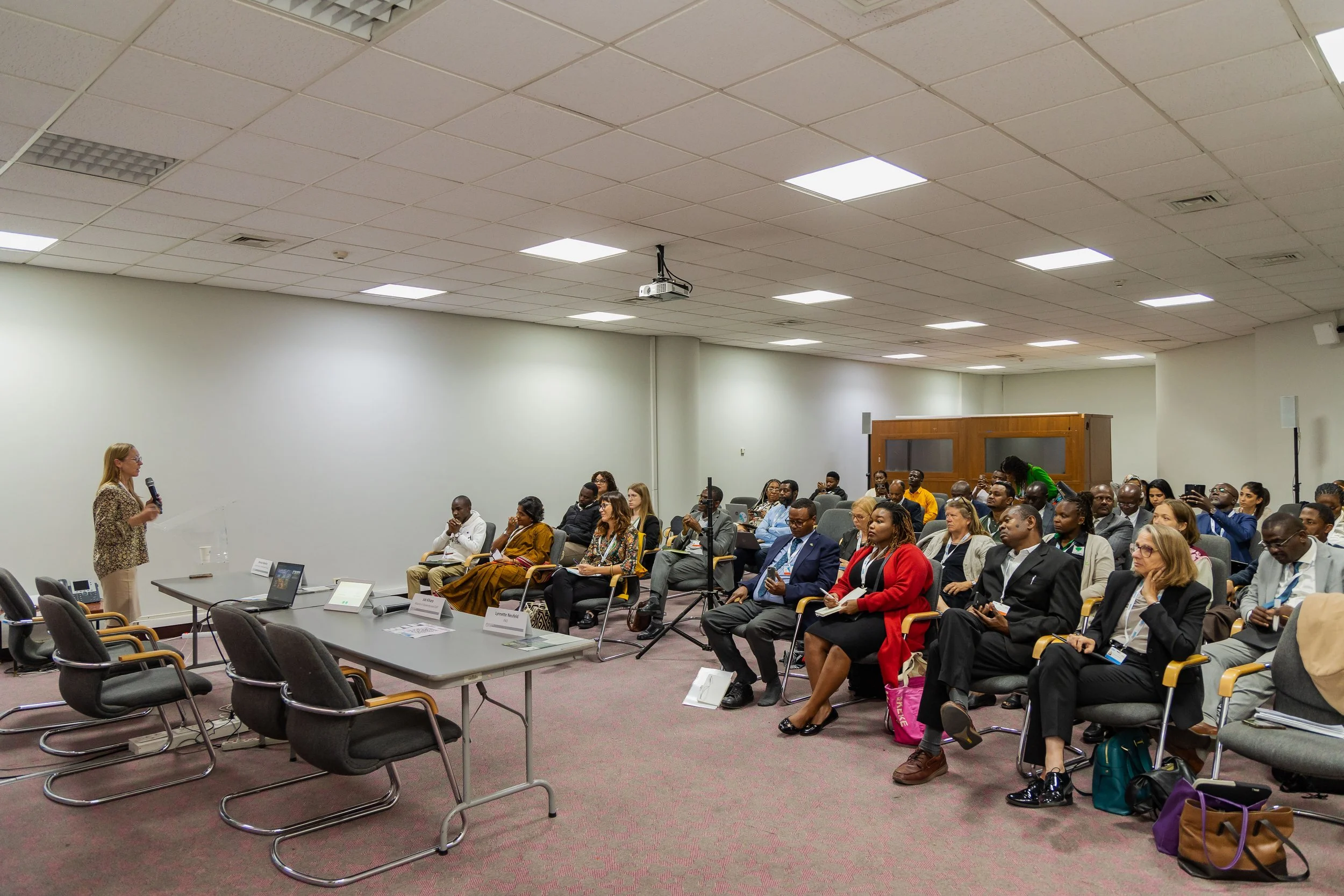
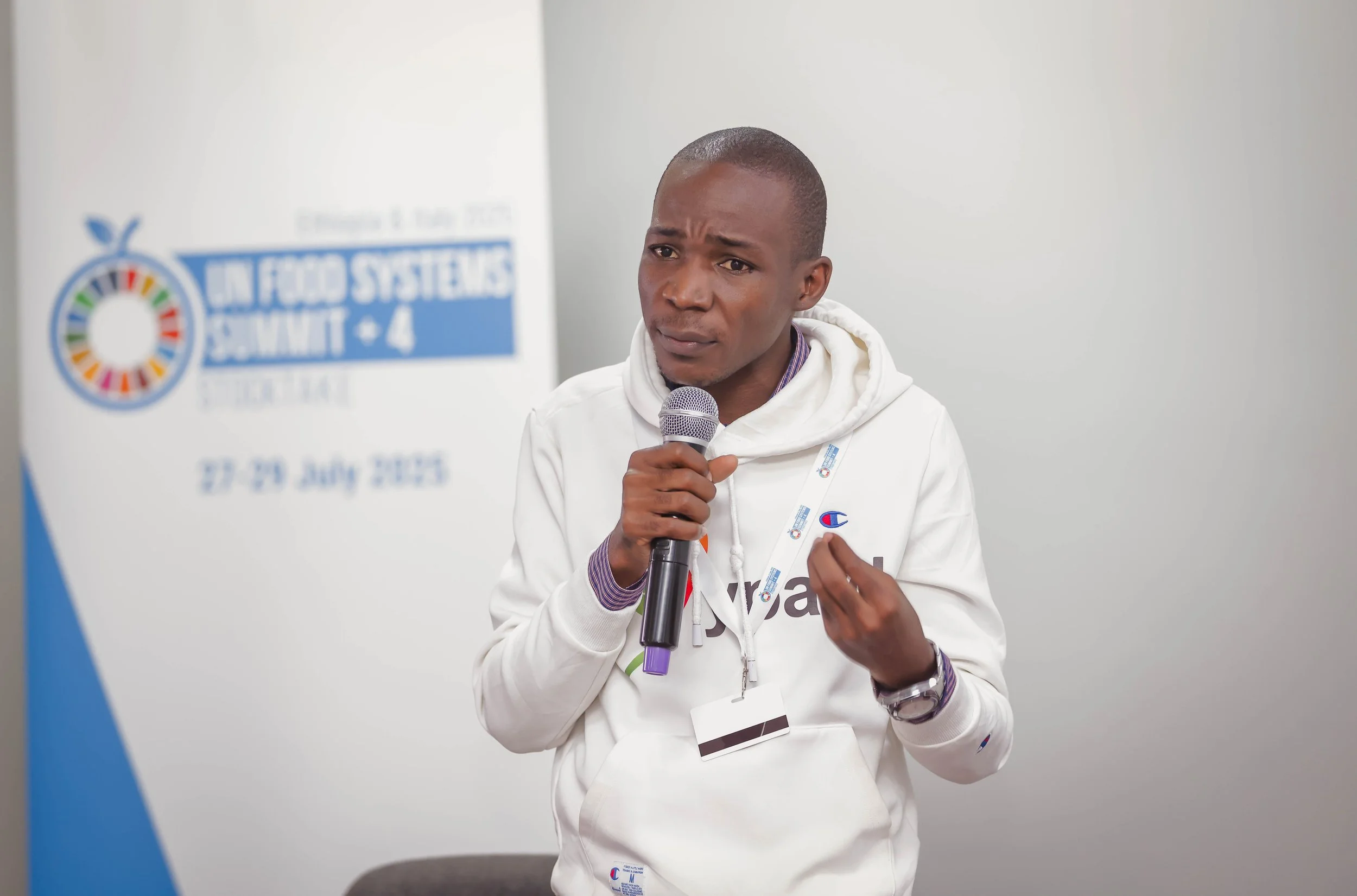


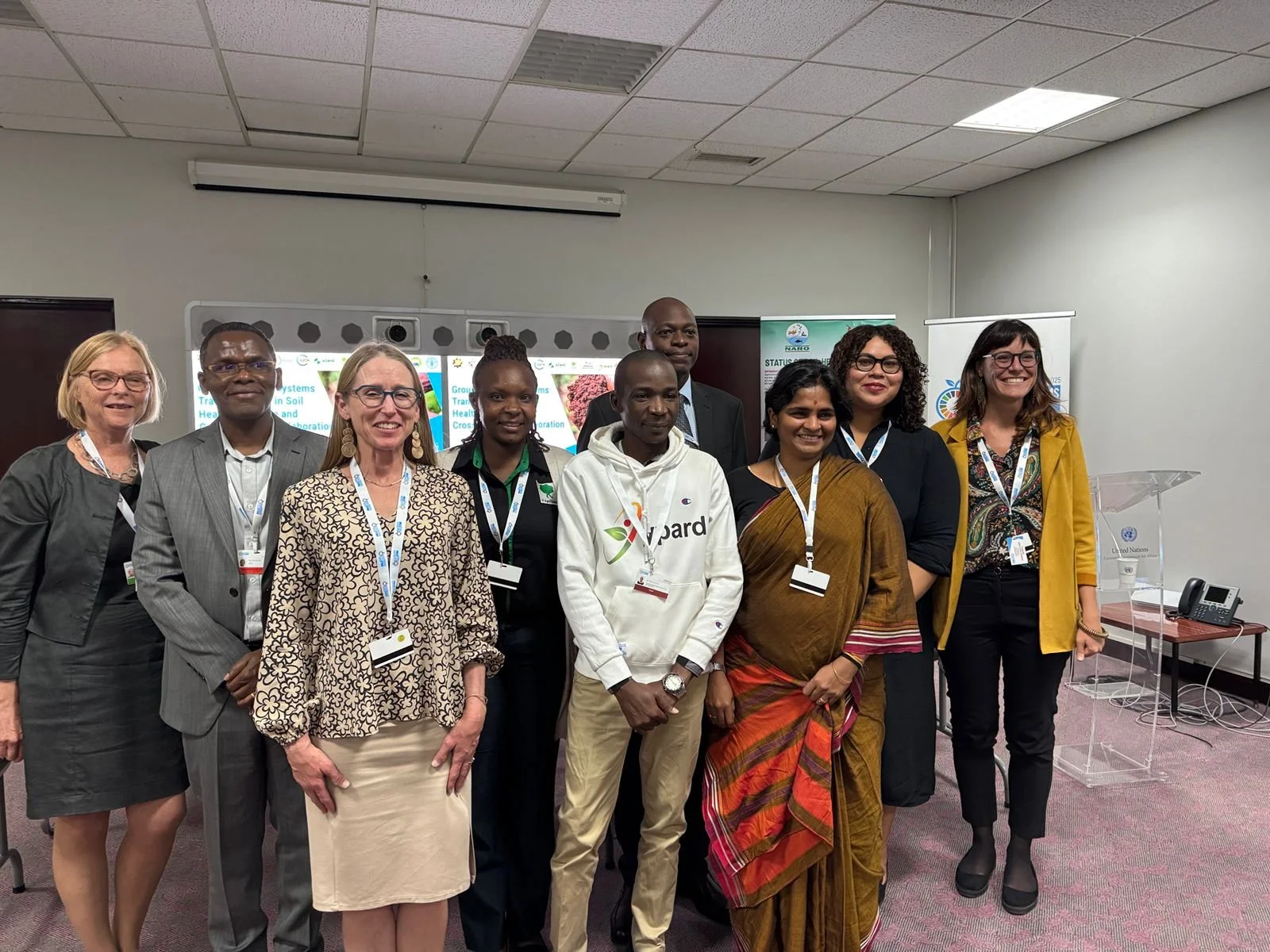





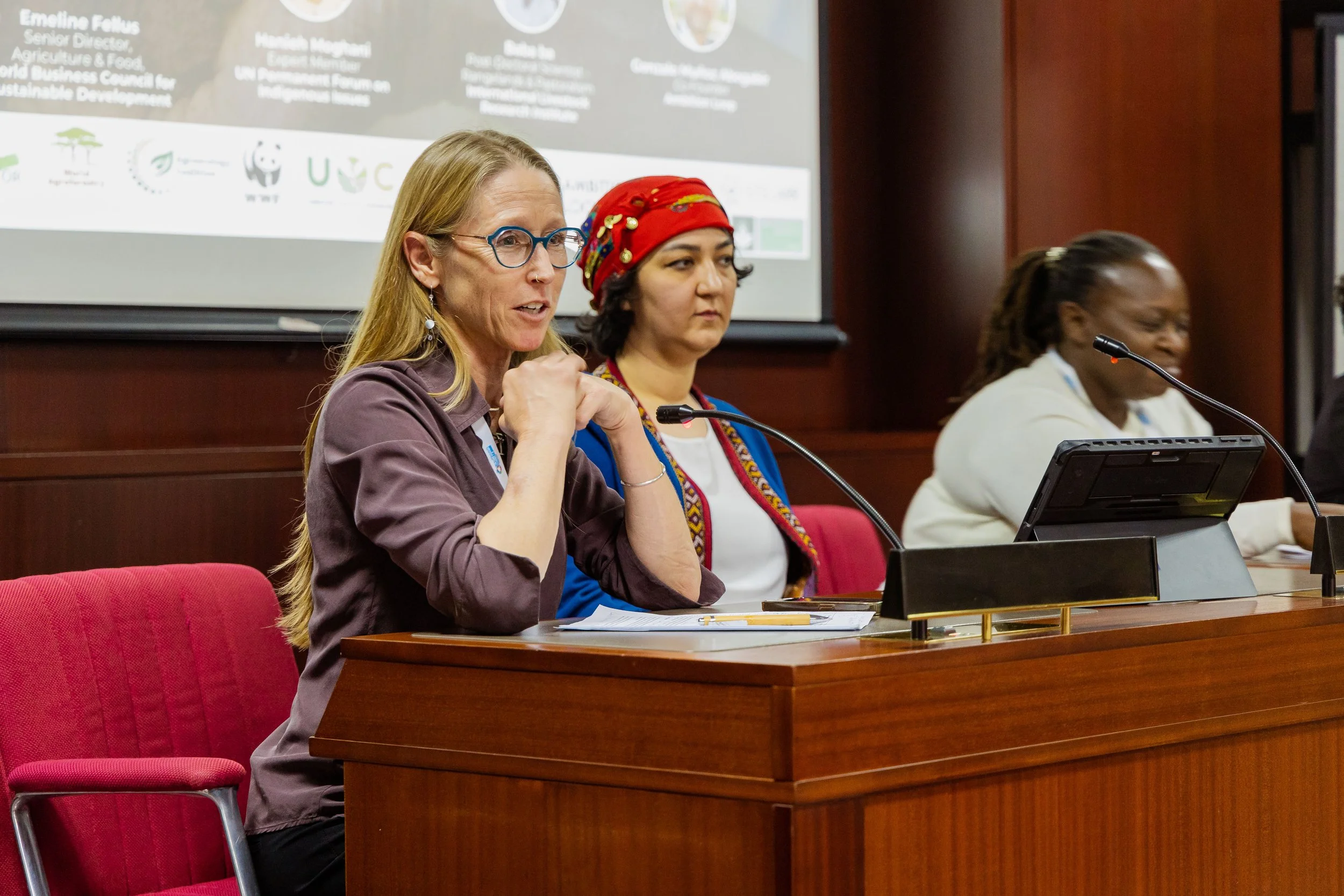

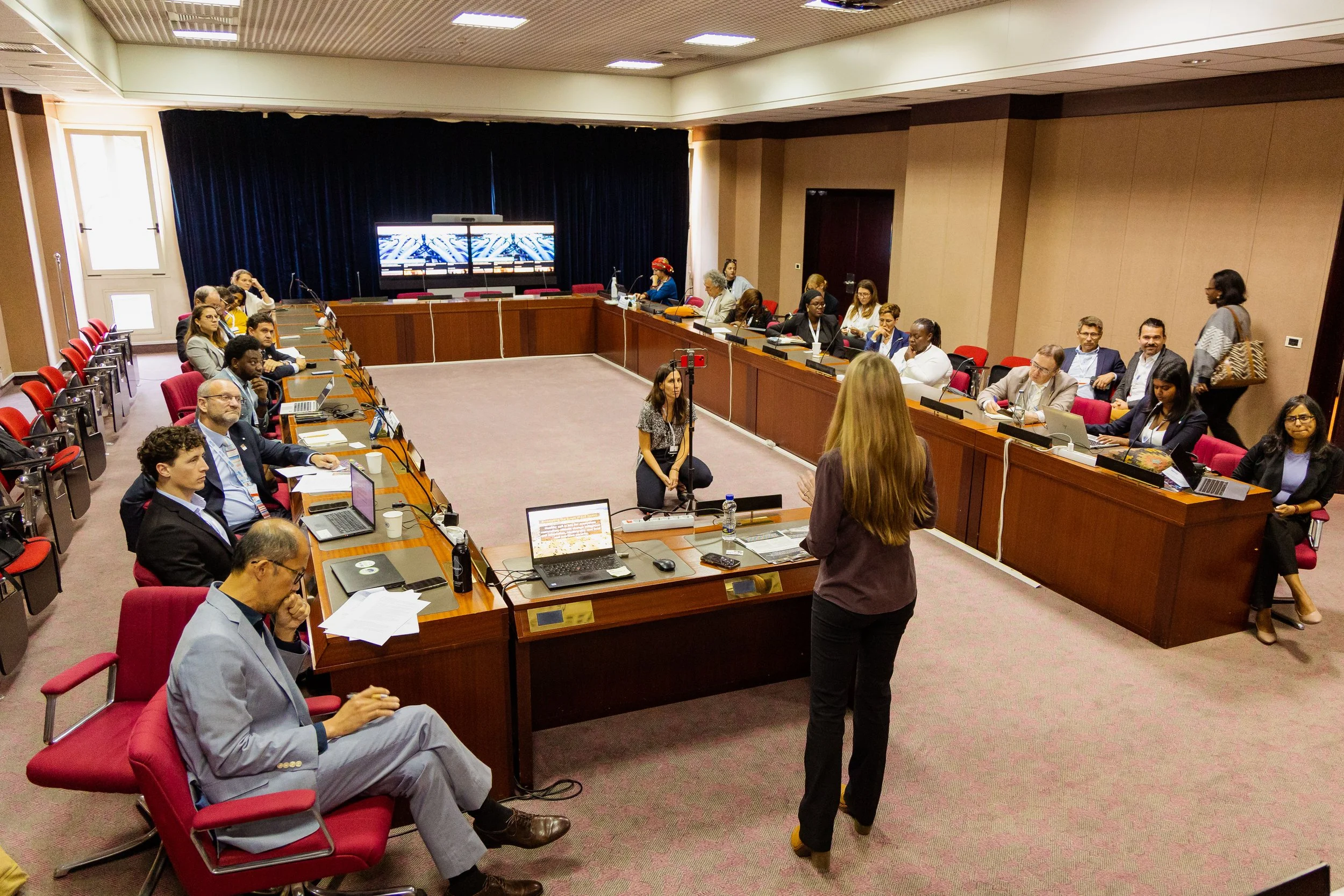
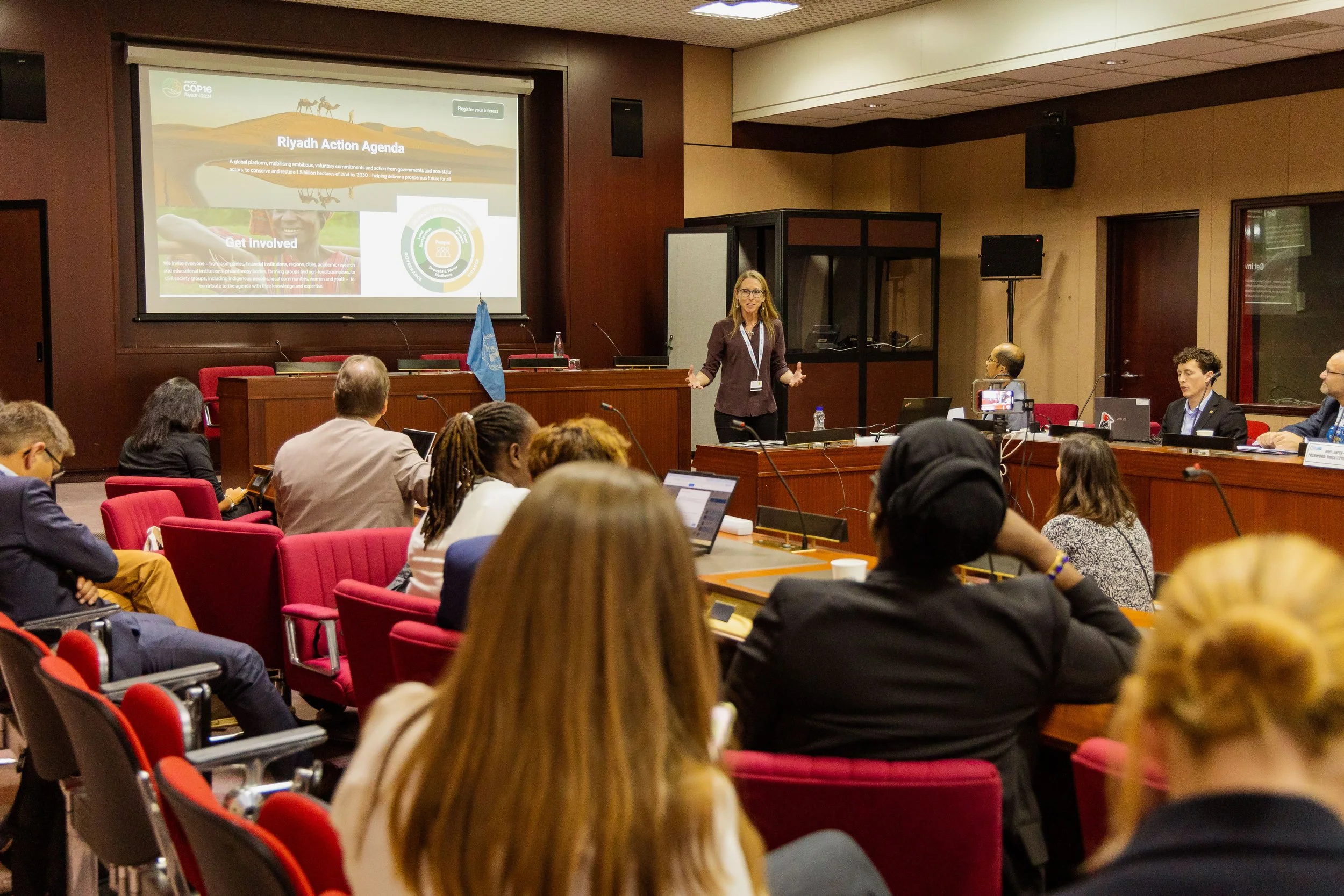
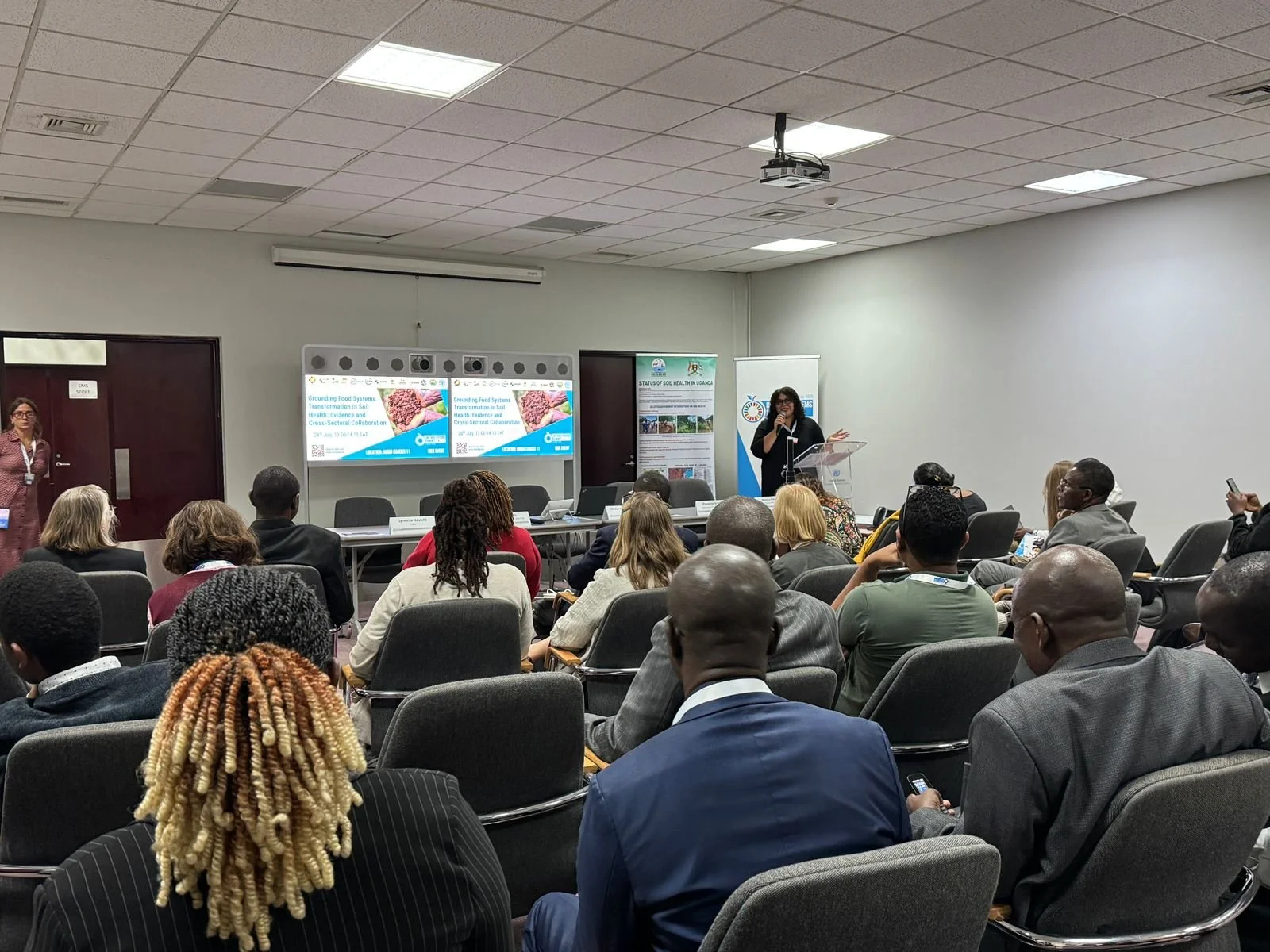
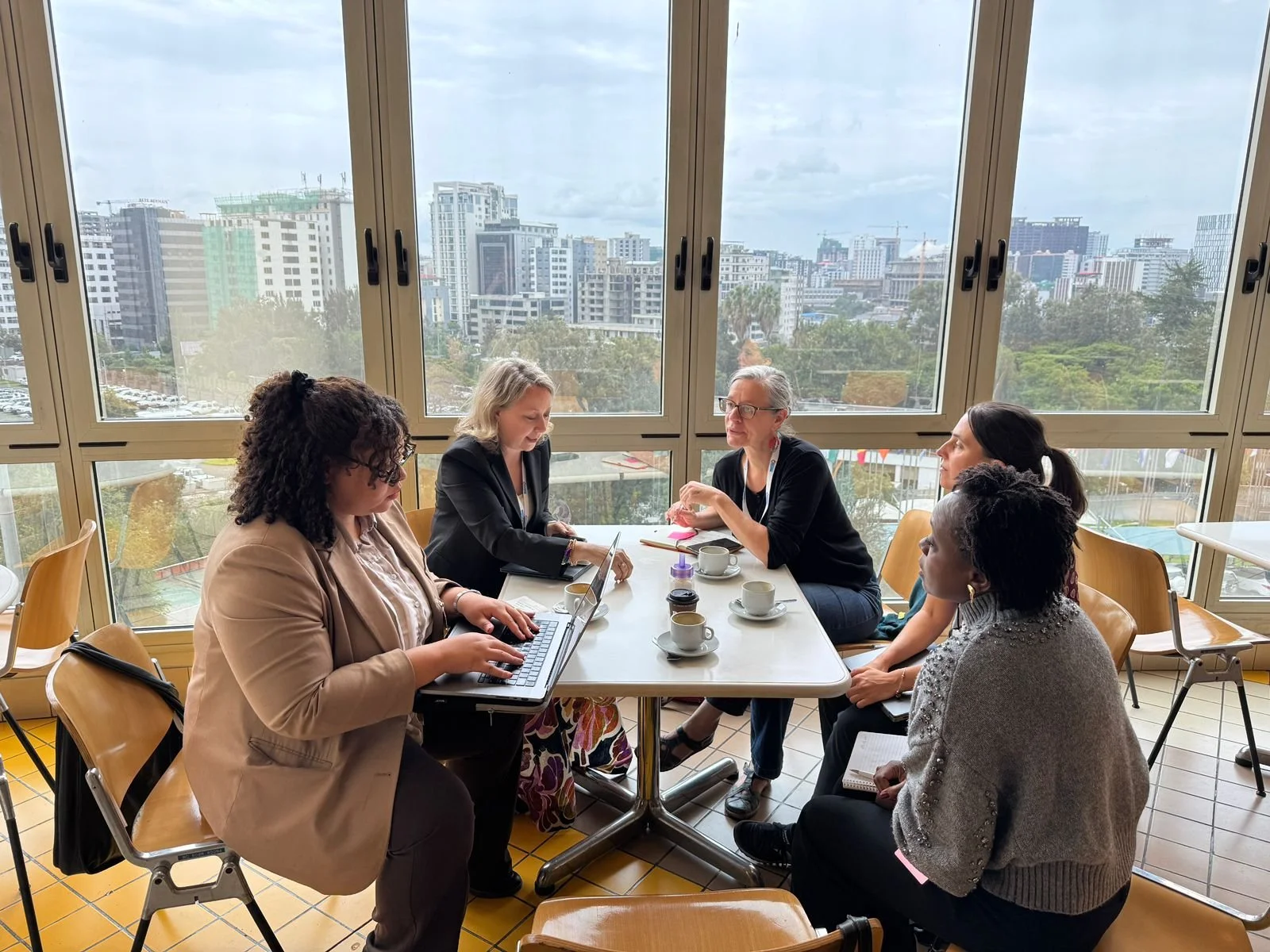

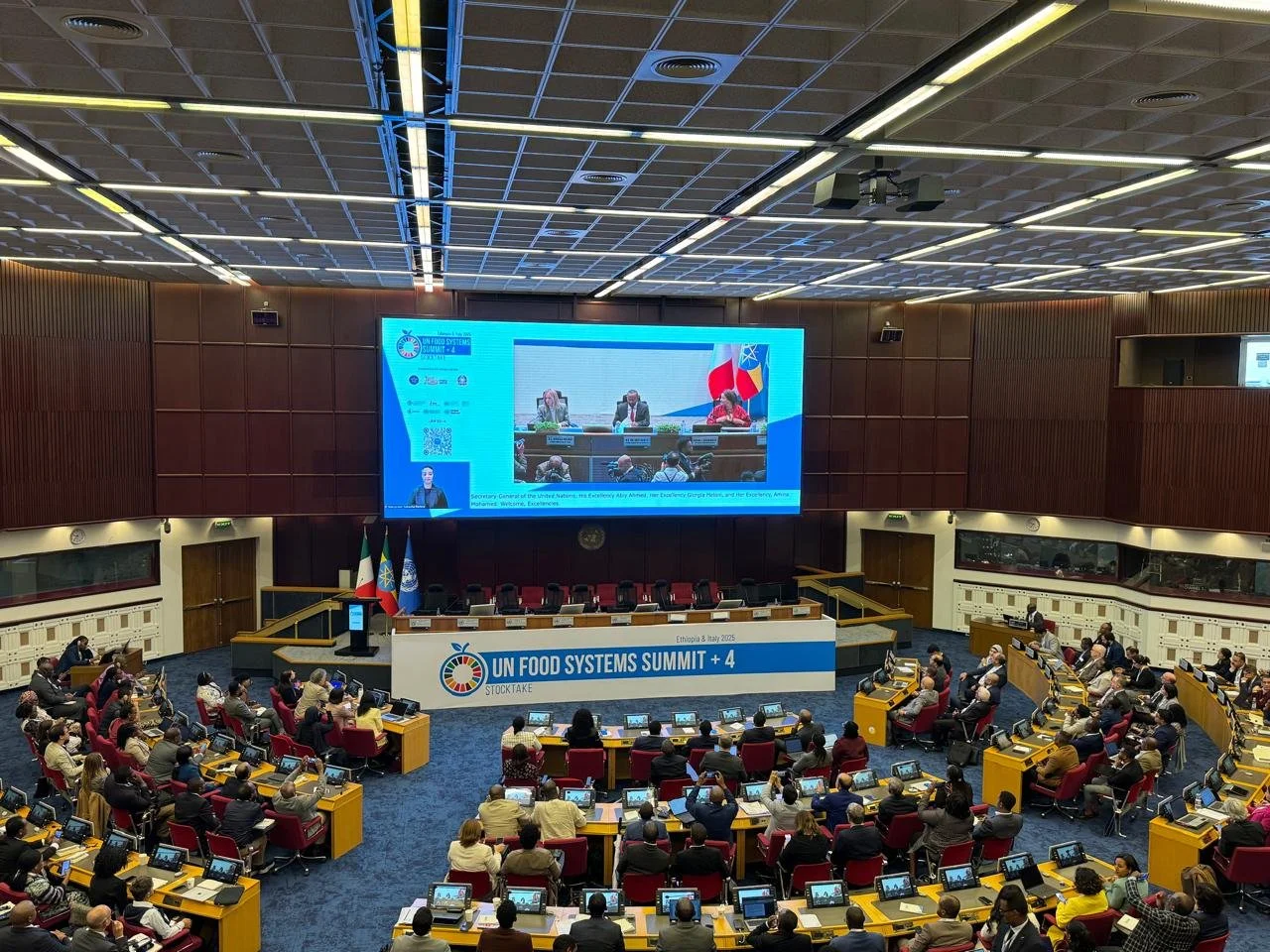

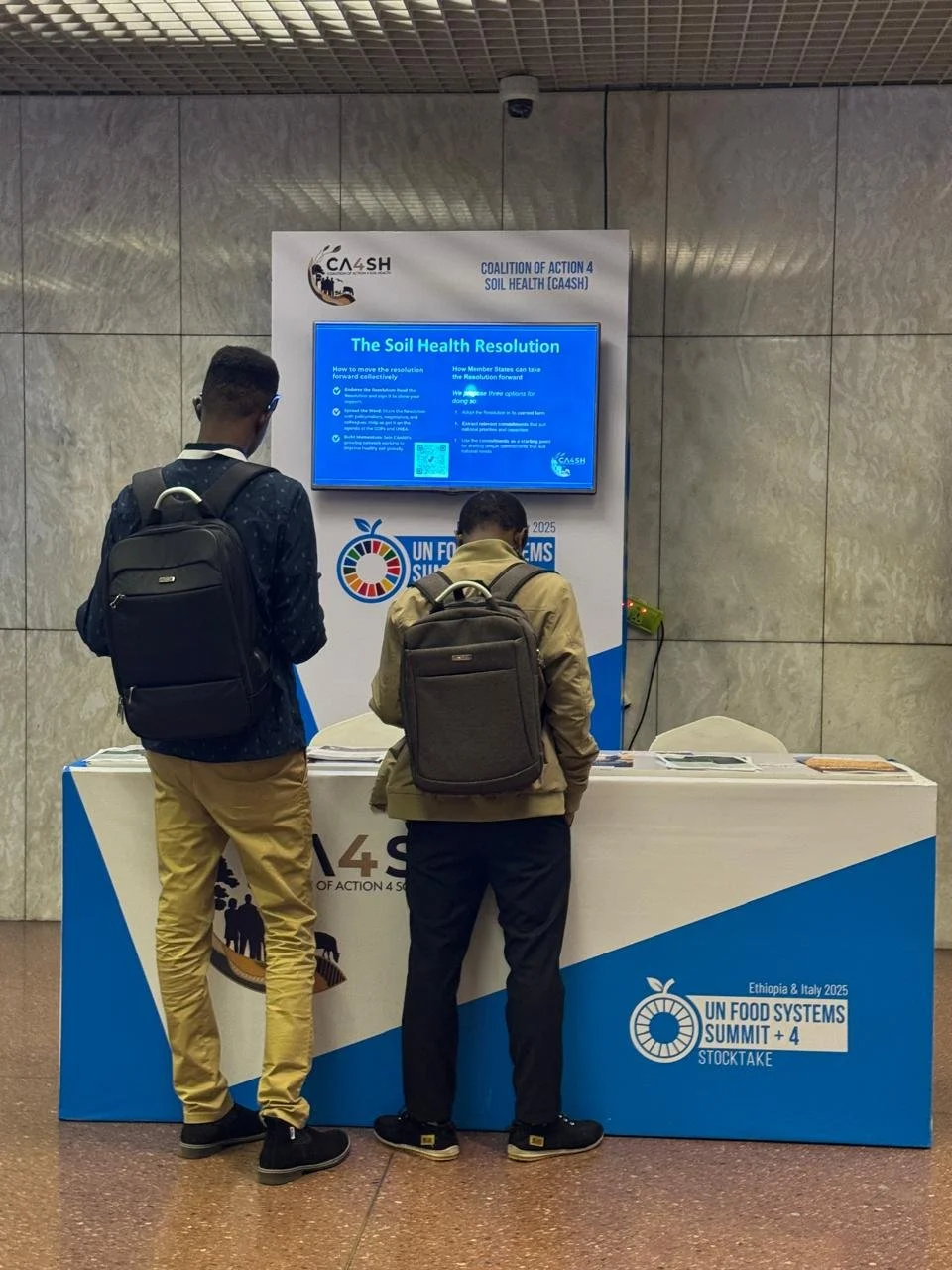

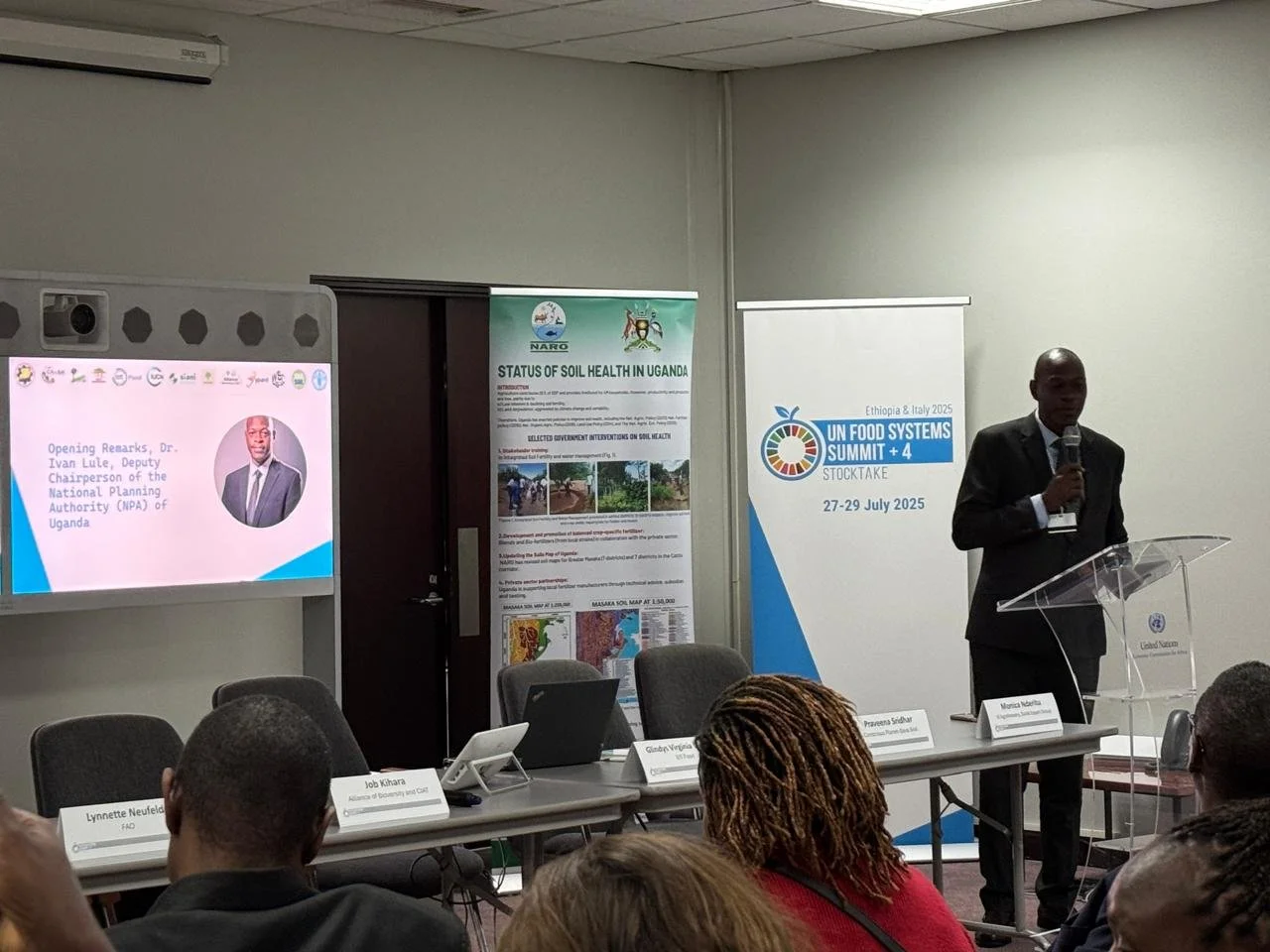
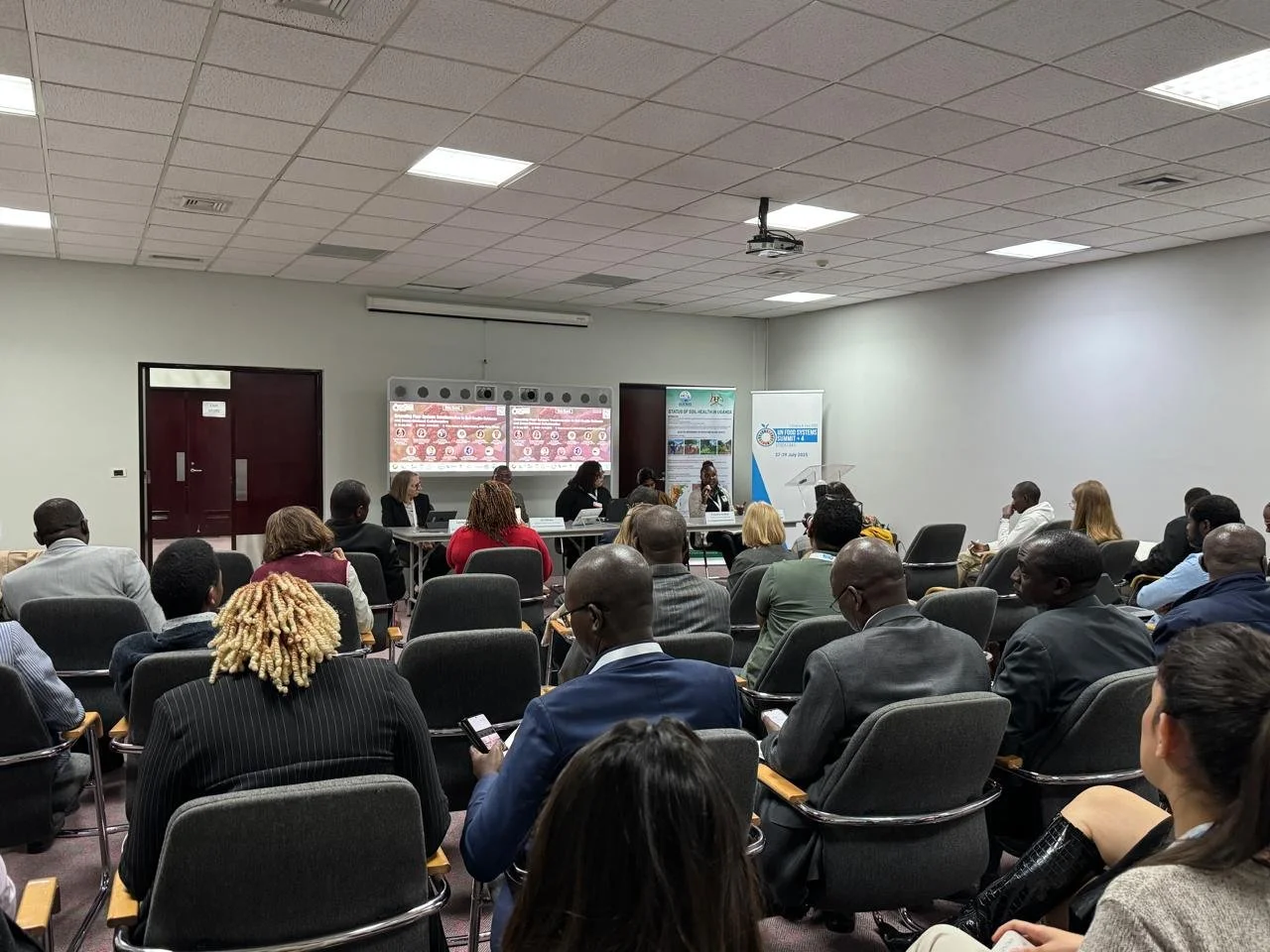




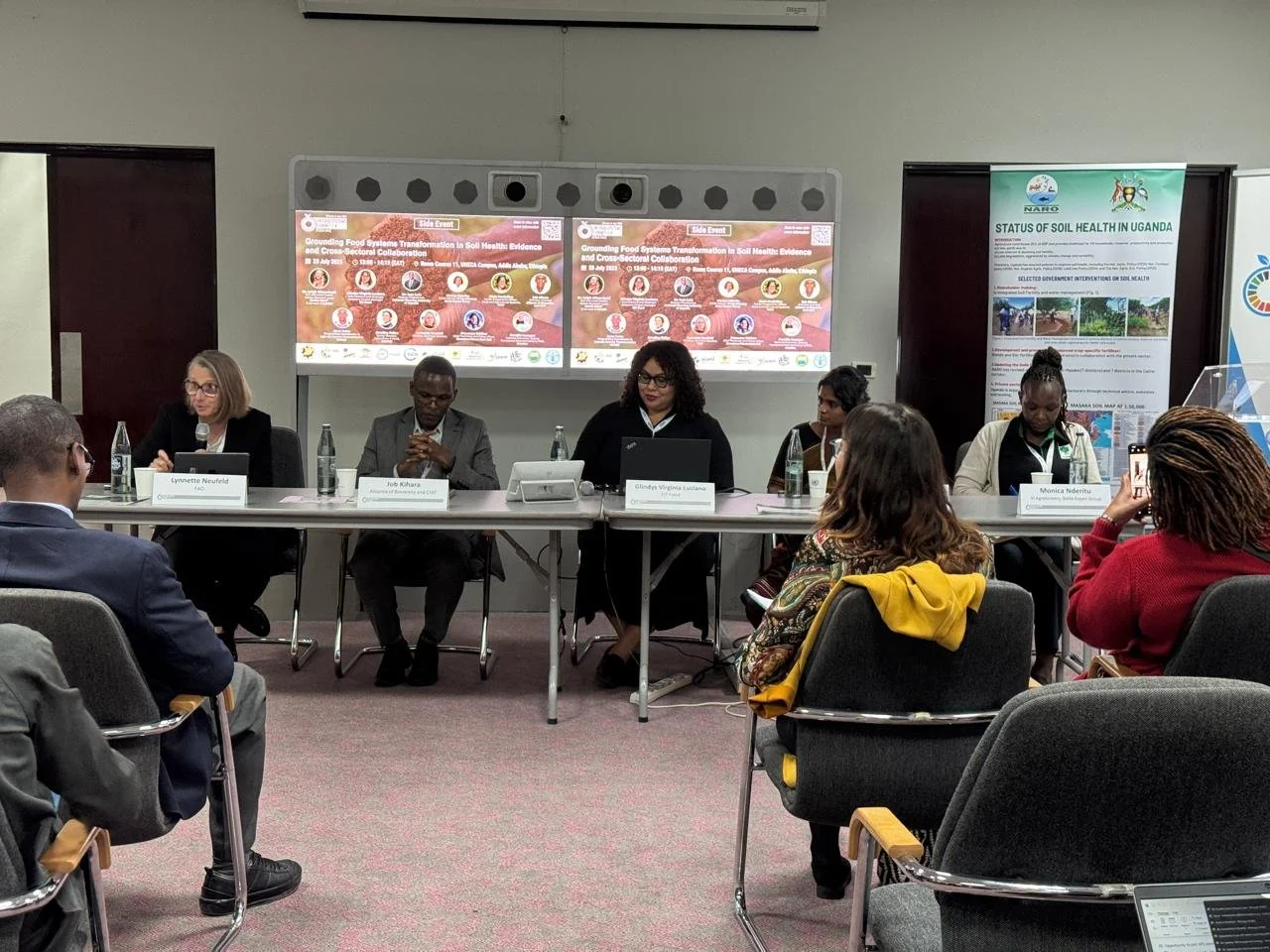


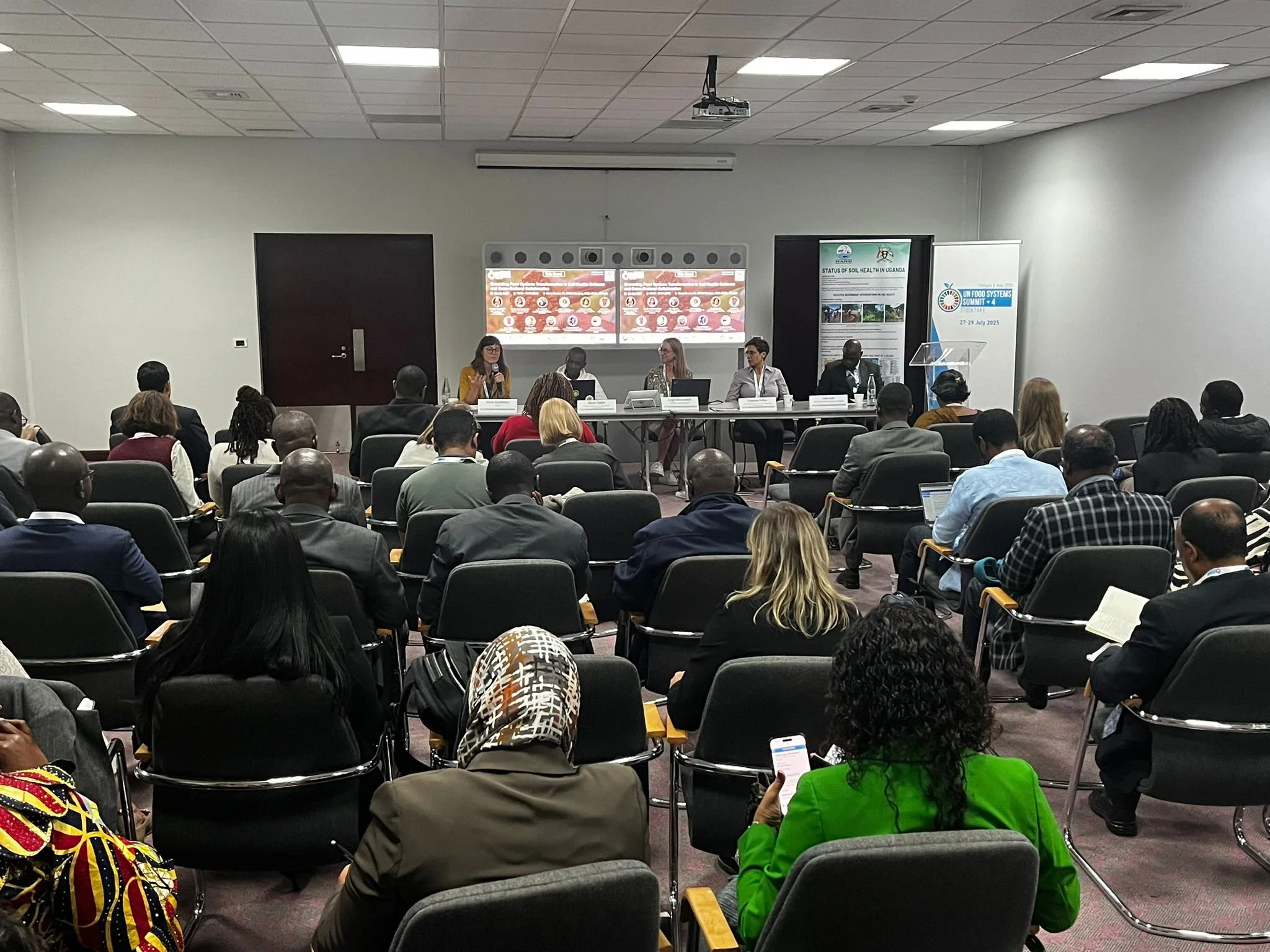
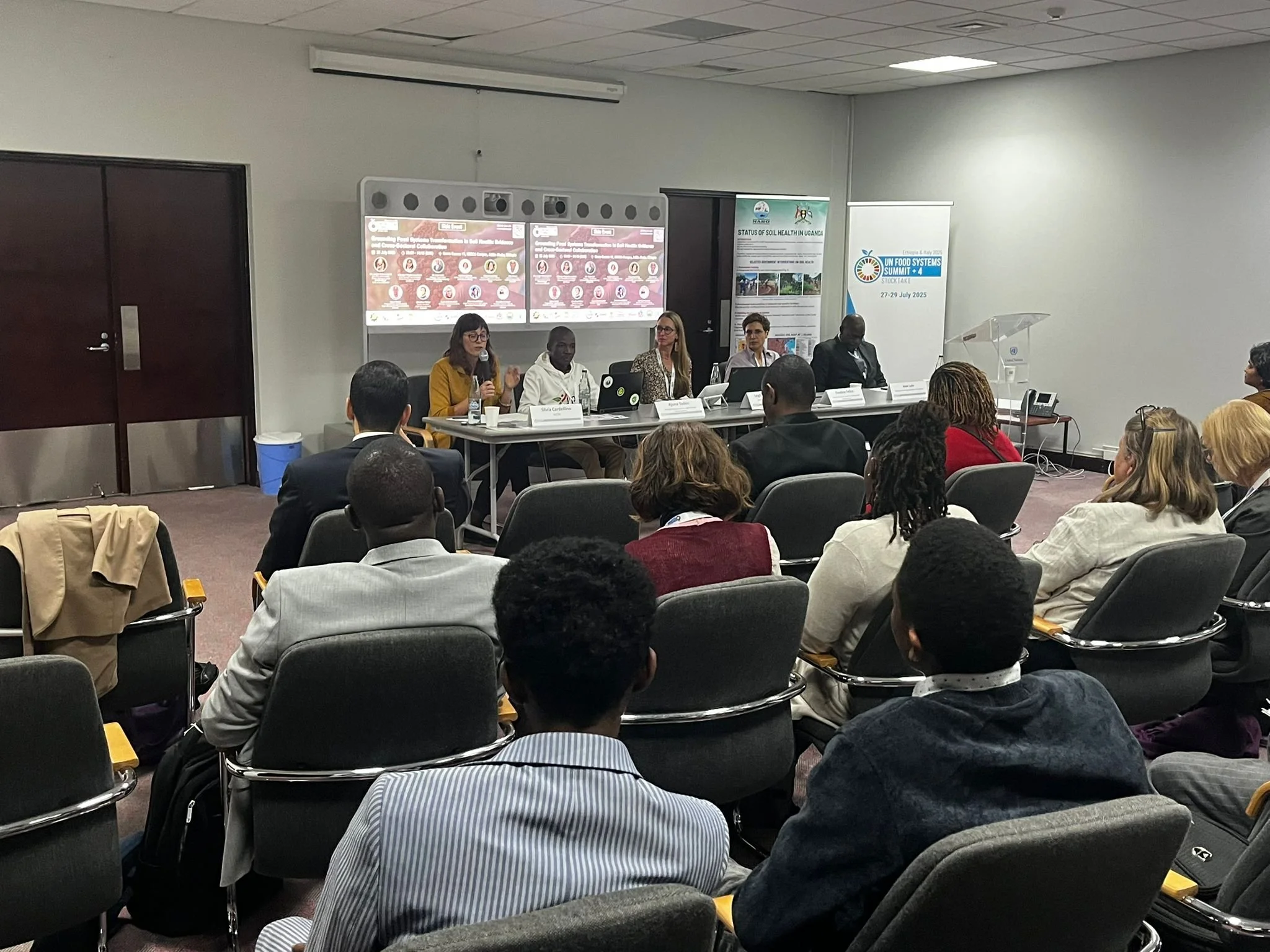






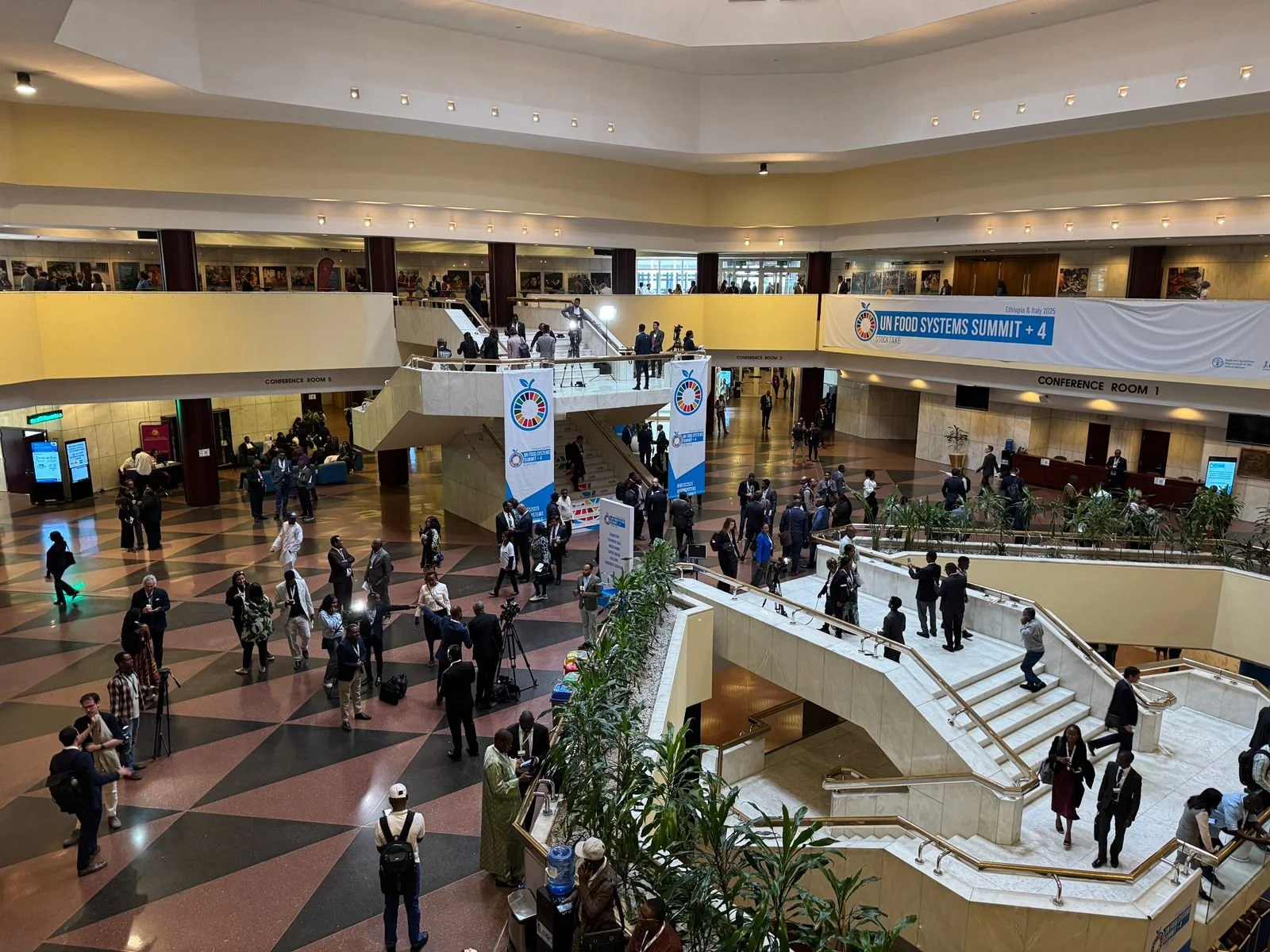
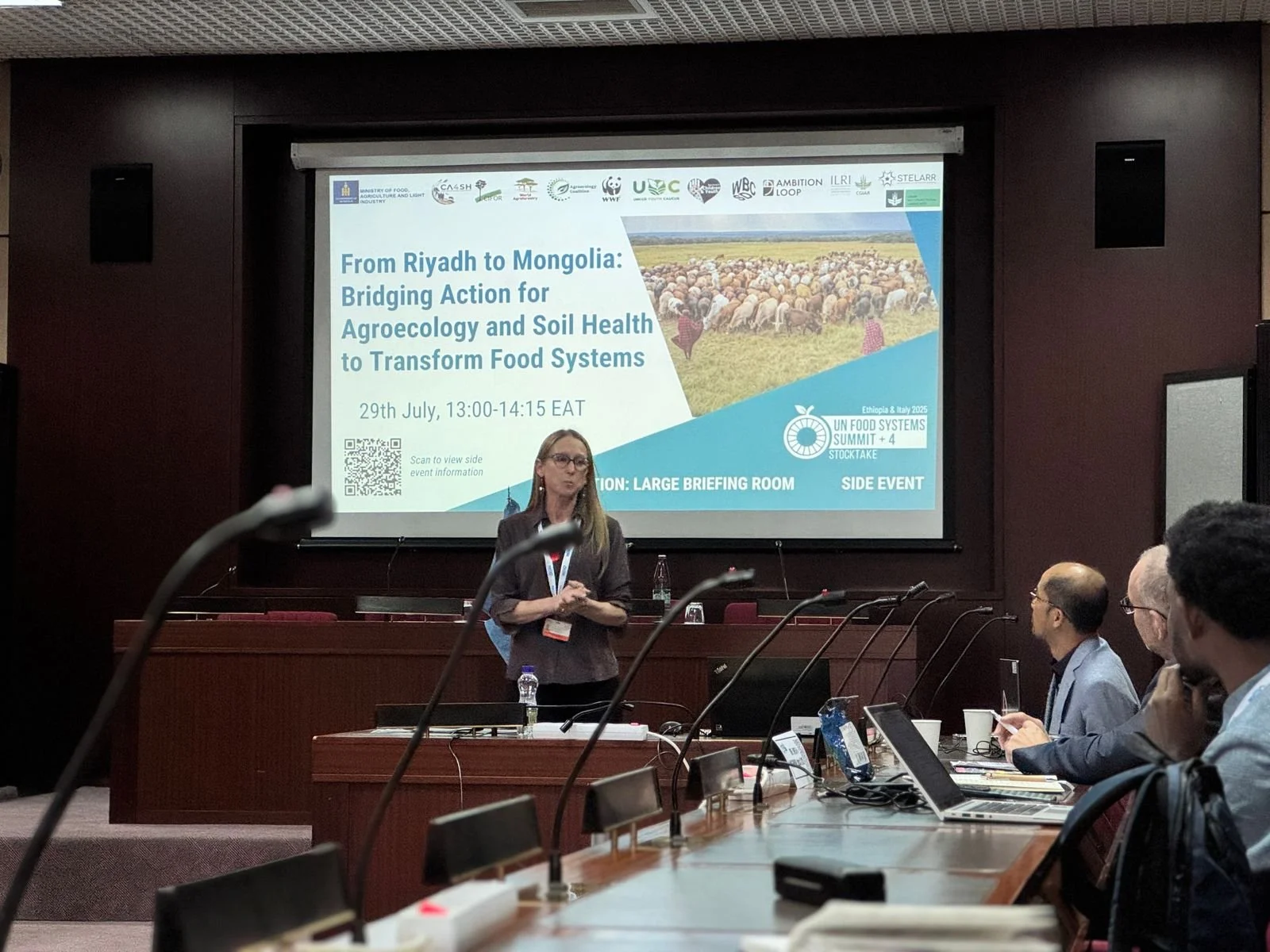
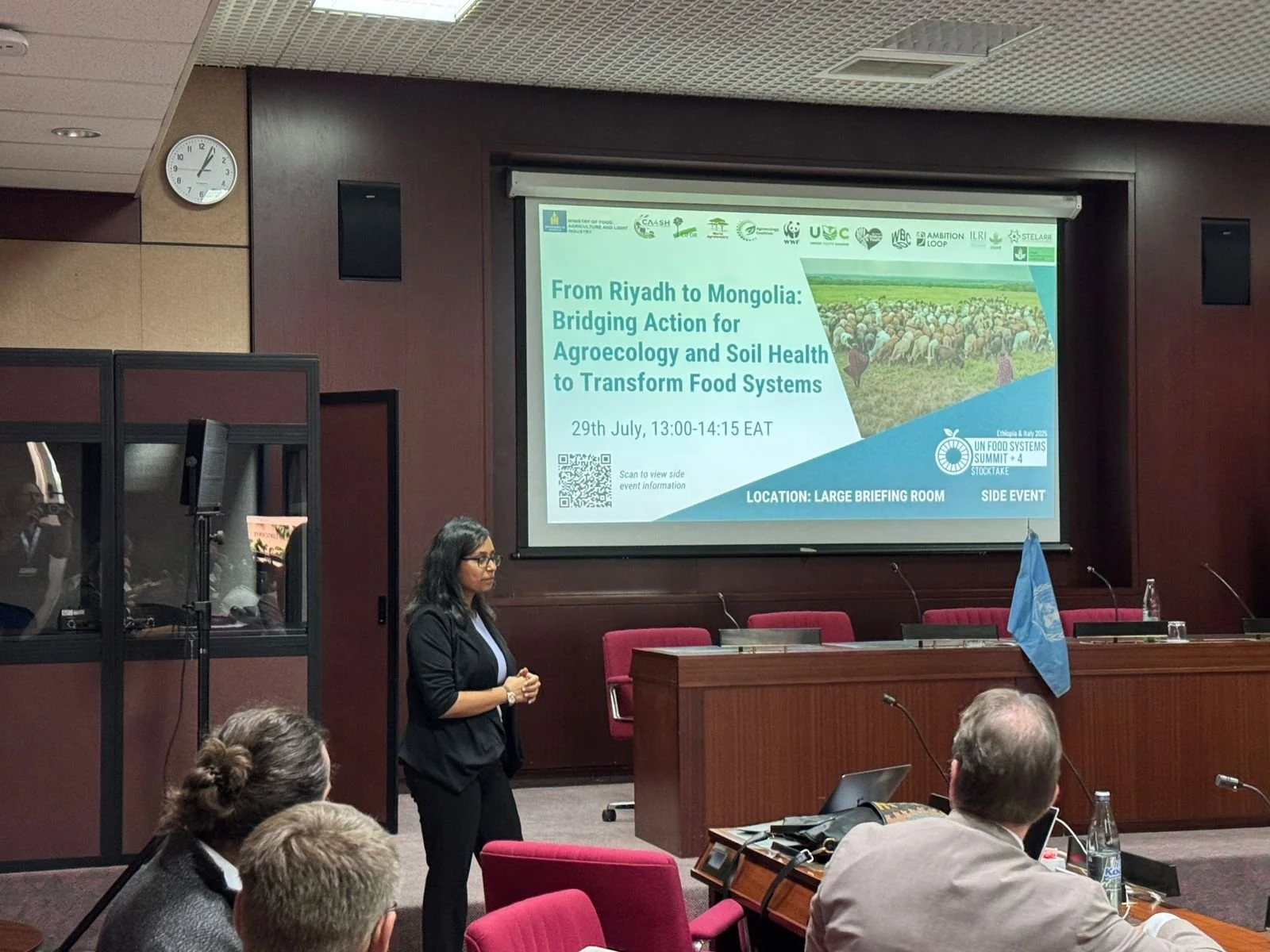
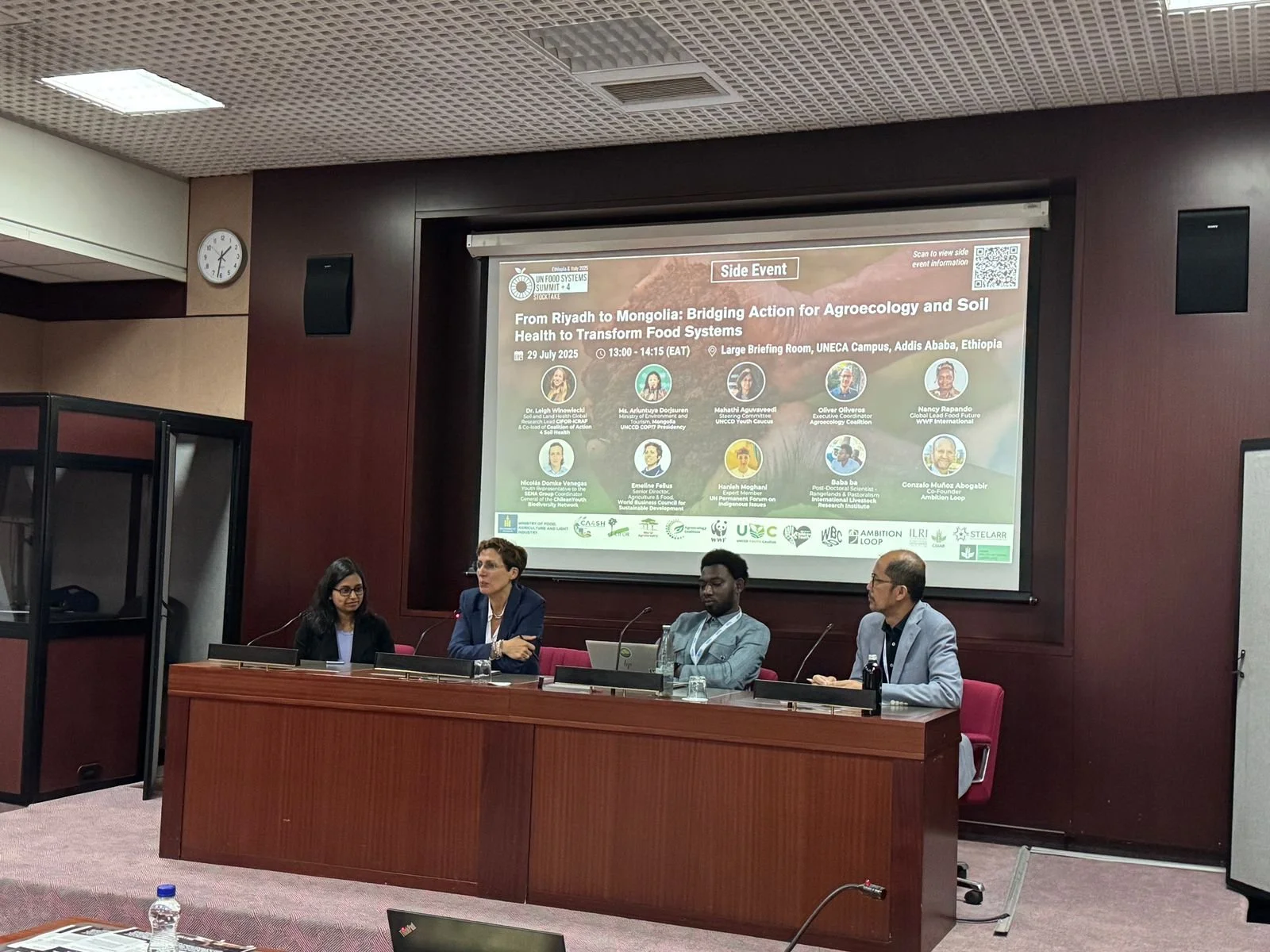




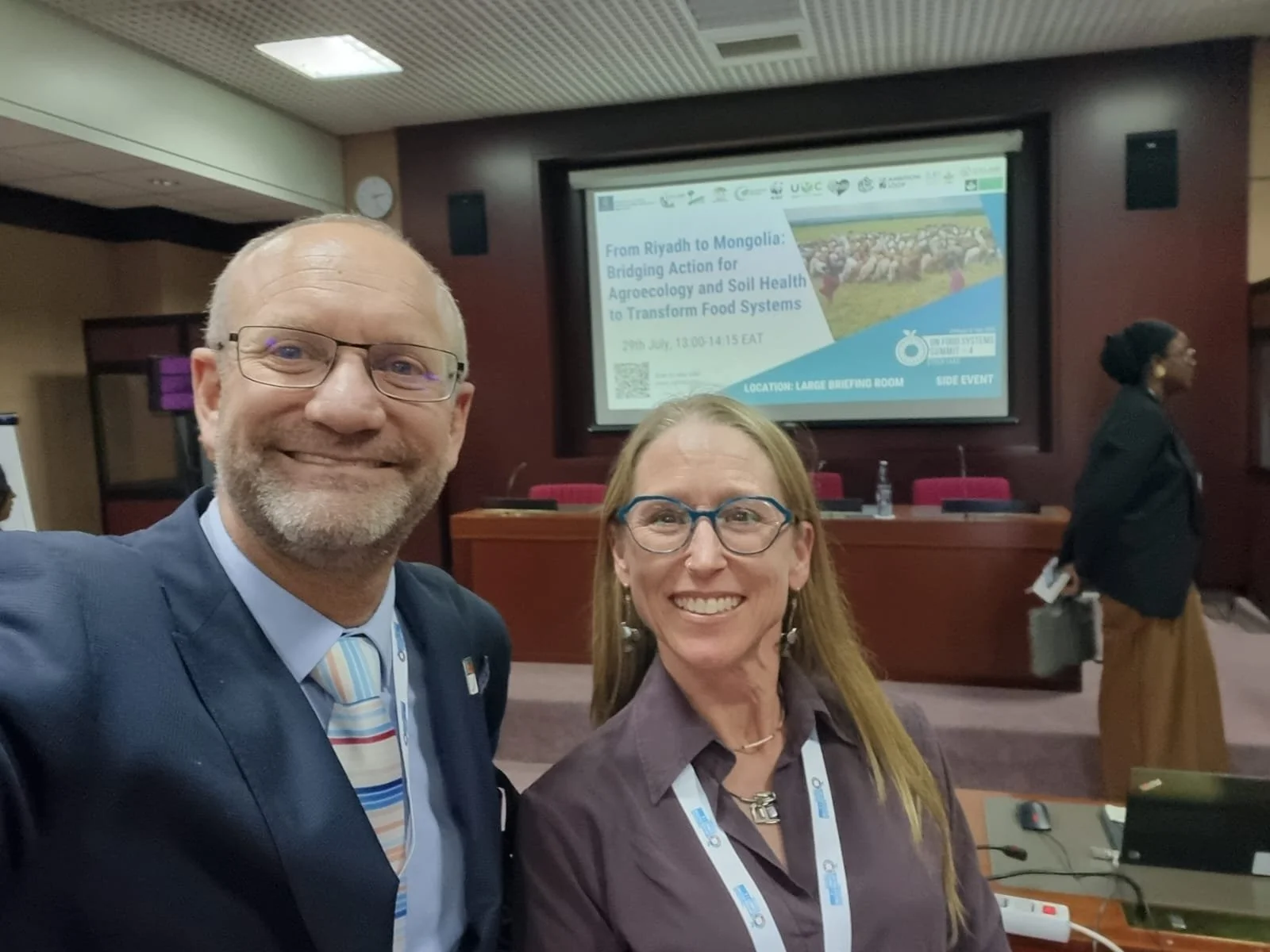


Call to Action
Healthy and living soil is central to resilient, equitable, and sustainable food systems. It plays a vital role in food security and nutrition, ecosystem restoration, climate resilience, and biodiversity conservation.
As the UNFSS+4 reaffirmed the need for an integrated approach to food systems transformation, we must ground national pathways and global action in robust soil evidence that reflect diverse knowledge systems. Doing so will help maximize the impact of financial investments, human resource capacity, and technical efforts—ensuring interventions are more effective, efficient, and scalable.
We call on all stakeholders to endorse the Soil Health Resolution and help bring soil health to the center of food systems transformation and global action.



